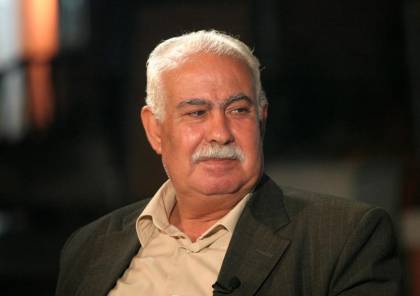Is Netanyahu weighing the implications of Trump’s admissions?
Al-Khamisa News Network - Gaza

Author: Talal Awkal
As Benjamin Netanyahu — or rather the occupying state he leads with the extremist “right‑wing coalition” — continues his wars, he is placing the entity on a strategic precipice.
The objectives clung to by the government of crimes and extermination, and the means it employs, exceed its capacity to achieve them, even if it so far appears able to continue its rampage on historic Palestinian land and in its immediate surroundings.
The Arabs, even if they appear to be in a state of laxity or an unacceptable flexibility, are no longer the Arabs of the last century.
One cannot bet on what seems to be collusion, silence, timidity or even covert cooperation between some regimes and the Hebrew state; the region Netanyahu speaks of as part of the “Greater Israel” objective is more than his stomach can digest, which has so far failed even after nearly two years to swallow the Gaza Strip.
Netanyahu and his fascist government do not realize that it is not the Arabs who have changed from what they were in the last century, but that the whole world is changing, and the unipolar international order is changing.
Even the United States, which has provided and continues to provide him with all means of support and protection, deploying all its political, military and security capabilities and international relations to a level approaching partnership, is changing in a way that is unfavorable to the terrible gamble Netanyahu is leading.
Donald Trump, who continues his full support for Israeli policy, has made alarming admissions about what the occupying state is doing. When Trump says that Israel “may” win the war but will lose on the level of international relations, the use of “may” suggests he no longer trusts the possibility that it will in fact win the war.
While Trump declares that Israel is the decision‑maker regarding what it does in the Strip, he expresses surprise at the changes to its standing within U.S. politics, warning that the influence of the Israeli lobby in Congress is no longer what it was and that popular support, especially among young Republicans, is clearly waning.
Moreover, Trump warns that the continued war in Gaza harms Israel’s image.
If Trump diagnoses this reality in his country — long a stronghold for the occupying state, pressure groups and its allies — what is happening in Europe and the rest of the world certainly exceeds this diagnosis in ways that are negative for it.
In parallel, a Pew Research Center poll last March indicated that 53% of Americans have a negative view of the Hebrew state, and that half of Republicans under the age of 50 — that is, the younger generation and the future — also hold a negative position toward it.
These changes are confirmed by a report from the National Research Institute at Tel Aviv University, which warns of a significant decline in support for the occupying state among voters of both the Democratic and Republican parties, and that its position in America faces an unprecedented crisis.
These indicators would have obliged another administration or government to adopt policies different from those Trump insists on continuing, but if Netanyahu is betting on Trump’s presence in the White House over the next four years to achieve his strategic goals or illusions, America after those years will not be the same as it is today.
The America on which Netanyahu leans is facing a deep crisis as a result of the domestic fallout of the administration’s policies, which increase polarization and divisions, curtail or restrict freedoms, and attempt to undermine the deep state.
Externally, the United States places itself alongside the occupying state in terms of isolation: President Trump has failed to bring peace between Ukraine and Russia, failed to bring peace and end the wars in the Middle East, and even failed to retain ally India, which has aligned with Russia, China and North Korea.
The U.S. administration failed to destroy Iran’s nuclear program or topple or weaken its regime, and failed to secure protection for global trade routes in the Bab al‑Mandeb, the Red Sea, and the Arabian Sea.
Questions extend further to Trump’s promises to annex Canada, the Panama Canal, New Zealand, and even his war on irregular migration.
The occupying state is in a historic predicament, and the same goes for America; if their fates are linked, Netanyahu is dragging his entity into a risky adventure.
The governing coalition in the occupying state may not realize the risks arising from continuing this dangerous gambit, but America must do what is required of it and can do if it is concerned for its favored ally.
Europe has begun to recognize these facts; albeit slowly, it has become more aware of how to ensure the existence of the colonial entity and protect it through a “two‑state solution,” which is the only way for its survival.
In this context, Palestinians should stop pleading with the U.S. administration or continuing to wait for a different positive role regarding what is happening in the region and what the Palestinian cause is suffering due to Israeli adventures.
This month, the UN General Assembly is expected to provide further signals of the decline in the Hebrew state’s standing in the world.



